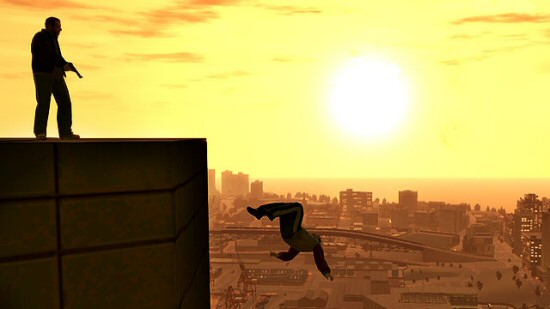 There’s a storm brewing in the Windy City over the allegedly unconstitutional treatment of video game ads, with an industry trade group suing Chicago’s transit authority.
There’s a storm brewing in the Windy City over the allegedly unconstitutional treatment of video game ads, with an industry trade group suing Chicago’s transit authority.
This turn of events stems from Grand Theft Auto IV. Last year, a rash of shootings led the Chicago Transit Authority to pull GTAIV bus ads, after a local Fox News report drew a tenuous link between the ads and the incidents. GTA Publisher Take-Two Interactive claimed breach of contract, and the transit authority reinstated the ads, but later banned all advertisements for M-rated games. It’s important to note that R-rated movie ads are still allowed.
That brings us to the Entertainment Software Association’s free speech lawsuit, and a question posed by the Christian Science Monitor: “Are ‘mature’ video games worse than rated-R movies?”
No. Let’s put the “games are worse because they’re interactive” argument aside for a moment and look at the ratings themselves. Here’s what the Motion Picture Association of America says about R-rated films:
An R-rated motion picture may include adult themes, adult activity, hard language, intense or persistent violence, sexually-oriented nudity, drug abuse or other elements, so that parents are counseled to take this rating very seriously.
Now, here’s the Entertainment Software Ratings Board on the M rating:
Titles rated M (Mature) have content that may be suitable for persons ages 17 and older. Titles in this category may contain intense violence, blood and gore, sexual content and/or strong language.
Looks pretty similar to me, especially the phrase “intense violence” in both descriptors. If the ratings themselves are so similar, the point of contention will surely be interactivity. But as courts have repeatedly found, it isn’t proven that violent video games cause violence because you play them, while movies don’t because you watch them.
Whether you like violent video games or not, their first-amendment protections should be a no-brainer to anyone who’s even dimly aware of past laws and lawsuits. I can’t see how the Chicago Transit Authority will emerge the victor in this case.
